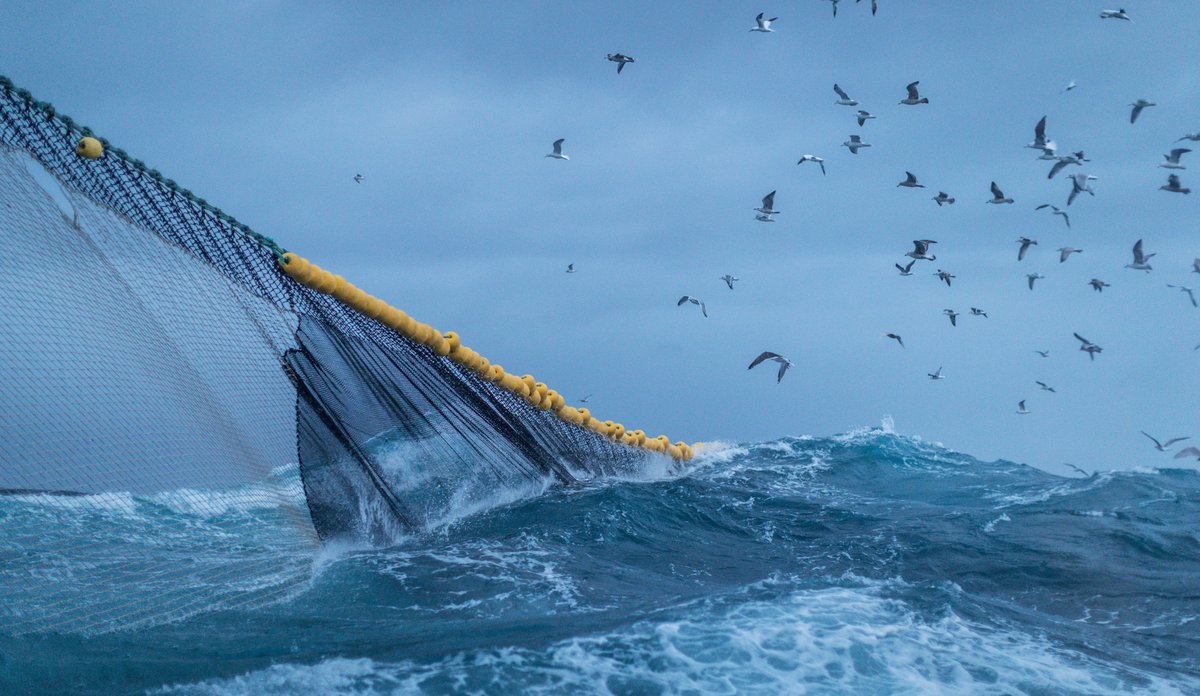FishCarbon group: Workshops on Assessing the Impact of Fishing on Oceanic Carbon

Illustrasjonsbilde - fiskegarn
Photo: Paolo Cipriani / IMR| Date | 22. April 2024 - 24. April 2024 14:00 - 16:00 |
|---|---|
| Location | Online |
Last year’s ICES Workshop on Assessing the Impact of Fishing on Oceanic Carbon (WKFISHCARBON) was attended by 98 people. We are now holding a series of workshops in the week commencing 22 April 2024. These workshops will review outcomes from the 2023 meeting, consider new research that has been produced since April 2023, and develop terms of reference for a second WKFISHCARBON to be held in November 2024.
The workshops will cover the following topics:
- The role of fish and fishing in the biological carbon pump: Monday 22 April at 14:00-17:00 UTC, led by Simeon Hill and Jennifer Freer (British Antarctic Survey).
- Direct greenhouse gas emissions from fisheries: Tuesday 23 April at 12:00-15:00 UTC, led by Arielle Sutherland-Sherriff and Allison Perry (Oceana).
- Benthic trawling impacts on carbon release: Wednesday 24 April at 12:00-16:00 UTC, led by Samuel Rastrick Institute of Marine Research, Norway).
To participate in these workshops and the work of WKFISHCARBON please register here
Sessions
The role of fish and fishing in the biological carbon pump
Monday 22 April at 14:00-17:00 UTC), led by Simeon Hill and Jennifer Freer (British Antarctic Survey).
Contact: Simeon Hill (sih@bas.ac.uk)
It is becoming increasingly apparent that fished (e.g. pelagic and demersal finfish, squid, krill), and potentially fished (e.g. mesopelagic fish) species play a significant role in the biological carbon point (BCP). Consequently, fishing has the potential to disrupt the BCP and there is a need to improve quantification of this effect. The 2023 WKFISHCARON meeting recognised that knowledge of the BCP is particularly limited for shelf areas where the majority of fishing occurs. Important knowledge gaps include the fate of faecal pellets when they reach the seabed. This session will review new information on the role of fish and fishing in the biological carbon pump in both open ocean and shelf areas and will propose relevant terms of reference for the November 2024 WKFISHCARBON meeting.
Direct greenhouse gas emissions from fisheries
Tuesday 23 April at 12:00-15:00 (UTC), led by Arielle Sutherland-Sherriff and Allison Perry (Oceana).
Contact: Arielle Sutherland-Sherriff (asutherland@oceana.org) Allison Perry (aperry@oceana.org)
Fisheries emissions of greenhouse gases (GHGs), primarily carbon dioxide (CO2), methane (CH4), and nitrous oxide (N2O), have garnered increasing attention in recent climate research and mitigation strategies. Reducing these emissions requires comparable data by vessels and fleets, based on standardised methods, to establish clear baselines and to evaluate the impacts of technological, management, or policy measures. This session aims to establish the current situation in Europe regarding the monitoring and assessment of direct GHG emissions from fisheries, and to identify best practices and the main priorities for standardising these assessments across fishing fleets and countries. Recent research will be presented on current approaches, gaps, and considerations in standardising methods and metrics for assessing fisheries emissions, followed by group discussions centred on data collection methods and challenges in standardisation and international collaboration.
Benthic trawling impacts on carbon release
Wednesday 24 April at 12:00-16:00 (UTC), led by Samuel Rastrick (Institute of Marine Research, Norway) and Billy Hunter (Agri-Food and Bioscience Institute Northern Ireland).
Contact: Samuel Rastrick (samuel.rastrick@hi.no)
The conversion of organic carbon (OC) stored in the seabed to inorganic carbon dissolved in the water column can be affected by bottom fishing. However, some effects of bottom fishing will tend to increase OC remineralisation, while others will have the opposite effect. Published estimates of OC remineralisation associated with bottom fishing also vary widely. Reflecting the great uncertainty and the many assumptions and simplifications associated with such calculations. The 2023 WKFISHCARON meeting recognised that the effects of bottom fishing and other anthropogenic stress on sediment carbon sequestration and remineralisation are likely site specific. Dependent on the complex interactions between local hydrodynamic activity (e.g. sediment mixing and transport), local sediment (e.g. grain size and OC content and stability), local environmental conditions (e.g. temperature and oxygenation), and local biological communities (e.g. production and bioturbation). This session will review new information on local drivers of OC accumulation and remineralisation. In order to develop a list of risk factors that can be used by managers to assess the local vulnerability of sediment OC to remineralisation in response to physical disturbance.
Published: 20.03.2024 Updated: 19.04.2024
